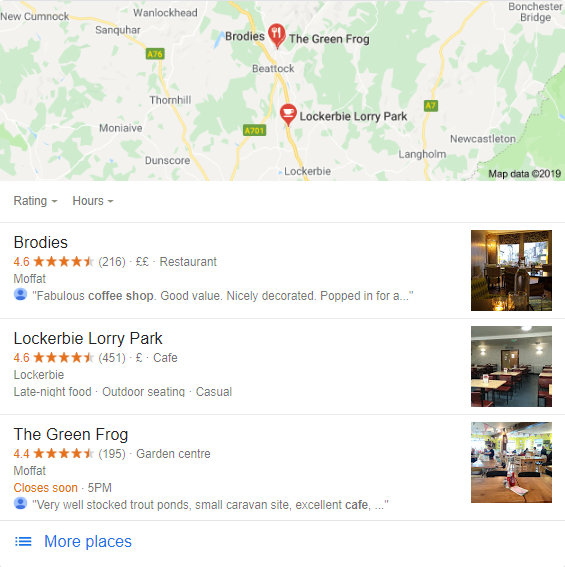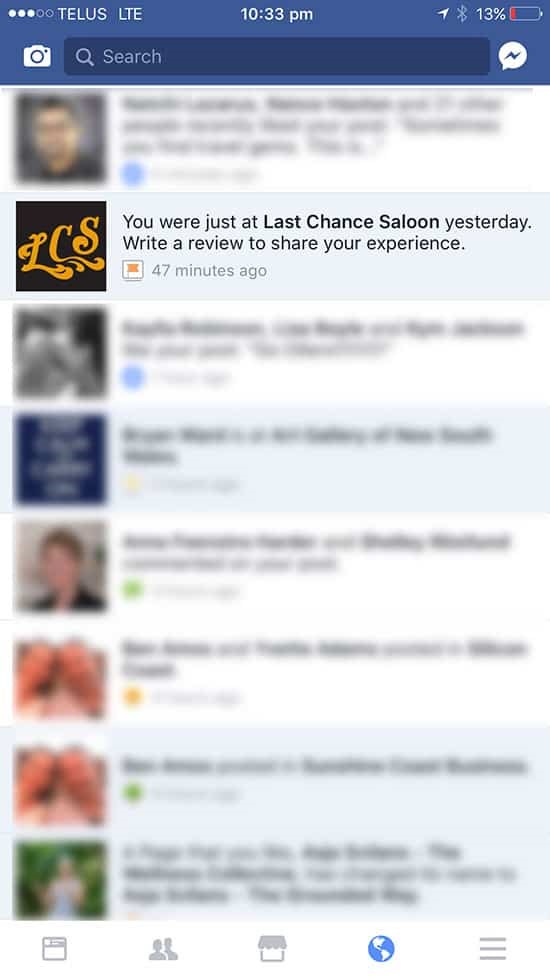5 reasons why Location Marketing is the key to your growth in 2020
What is Location Marketing
Location Marketing specifically targets the community around a local business. In a nutshell, it can be referred to as the process of optimising the online presence of a business’ physical location in order to drive foot traffic and awareness in the localized area.
Why has this type of marketing taken off recently?
If you think word of mouth is enough to drive traffic to your local business, it’s time to review your marketing approach. Did you know that last year, 97% of consumers found local businesses through the Internet?
This trend is due to a simple reason: an increase of users relying on mobile phones, tablets and their accompanying geo-location technology. Location-based marketing has always existed (think about Yellow Pages), technology has just opened up customers to reach out to businesses in new ways.
To stay ahead of your competition, you need to recognize and adapt to the modern consumer journey. Simply put, you need to be found where your actual customers are looking: online directories, review sites, social media and whichsoever location-based platform.
Why you should prioritize location marketing it in 2020?
Location-based marketing is becoming increasingly popular and affordable – and it works for all kinds of businesses. The main reasons you should consider using it are the following.
1. It helps generate more sales
The goal of any marketing campaign should be to attract more customers. Location-based marketing can help by getting your business in front of consumers when it matters the most: as they are conducting relevant local searches. Say you run a café: when a consumer types in “coffee near me”, that’s the moment he is more interested in purchasing your product. Whatever search engines he is using, he will be immediately presented with a list of physical stores selling coffee in his local area. The higher you appear in this list, the more chances you will be chosen by the user.
This is particularly obvious with Google.
When conducting a local search on Google, indeed, a user that searches “café near me” will only be presented with three options – with a drop down menu, ‘more places’, containing further options.

According to a survey conducted by Moz, only 8% of consumers are clicking on ‘more’ results while 44% of consumers will make their decision based on the first three local results. This means that if you are not in the top three of the local listings, you will miss out on potential foot traffic.
2. Makes hyper-segmentation incredibly easy
Who else is more likely to visit your business than people who are within walking distance of your products or service?
With location marketing, you target prospective customers in a highly specific, geographically restricted area, sometimes just a few blocks or streets, as they are conducting ‘’near me’’ searches on their mobile device.
For example, let’s say you’re in need of a medicine and you head to the nearest pharmacy. You get there only to discover they no longer sell it. What do you do next? You take out your mobile device and conduct a near-me search for pharmacies close to your location.
That’s location marketing in a nutshell.
3. It helps deliver a better customer experience
John needs to repair a pair of boots. He searches for “shoes repair near me’” and identifies Luke’s Shoemaker as the best fit from the top-three of local listings. The shop has good reviews, has nice photos and is on his way home from work – it’s the perfect fit. The store information says it closes at 7pm. John leaves work at 6pm and arrives at the flower shop at 6:15pm, right on time, he thinks. But the shop is closed. Luke’s Shoemaker has different opening times during the summer holidays but did not update the information online. John is not happy. He leaves a negative review and then heads to the second-best local result. John will shop at the competitor simply because one business provided accurate information and the other did not.
Inaccurate or missing listings are costing you clients. Not only they penalize your search rankings, but they also cause a frustrating customer experience. In the 2018 Local Search Ranking Factors Survey, 66% of marketing experts identified Google My Business listings and reviews as the most elements that will impact the most the online presence of a local business. If your listings are inaccurate, your customers could receive incorrect operating hours or contact information, leading to a greater chance of customer dissatisfaction, negative reviews and the loss of future business.
4. It gets you new Facebook reviews in minutes
Within the last few years, customers are increasingly engaging with businesses through social channels, and there is no social platform more popular than Facebook. 74% of consumers report using Facebook to find more information about businesses, and that includes, of course, reading reviews.
Would you like to get more Facebook reviews – without even asking for them? With location marketing, you can. Here’s how it works: a user “check in” at a location using geo-tagging on Facebook and, 1-2 business days afterward, Facebook will send him something like this…

Facebook automatic review request is based on check-ins, so the business owner doesn’t need to do a thing!
However, to enable this Facebook functionality, you need to ensure your location targeting is accurate with correct and complete Business information.
5. It helps reach more new customers
Nowadays, recommendations based on locations are a feature of every social platform.
In particular, Facebook allows you to ask your friends to recommend places to visit in specific cities. For instance, if you’re planning a vacation, you may want to ask your friends for restaurant recommendations in the area. How? Just type in the search bar ‘’Ask for recommendations’’, select your location and the kind of business you are interested in. When a Facebook friend recommends a venue in the comments, the algorithm will automatically tag the Facebook page of the business and display it on the map.
However, if the business does not have a Facebook page or a physical address associated with it, it won’t be displayed. That’s how important listings are for your local business!
Are you interested in how Location Marketing can be successfully implemented in your local business? Fill in the form below and we’ll get in touch with you.






